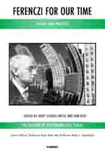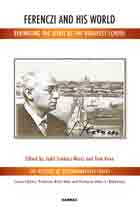- AKTUALITÁSOK
- Lapbemutató: Otto Rank – a pszichoanalízisen innen és túl
- Lapbemutató: Ferenczi 150
- Michael Balint and his World
- A test a társadalomban és a terápiában
- Lapbemutató: Pszichoanalízis és az állatok
- Lapbemutató: Szülés – születés
- A test a társadalomban és a terápiában
- Lapbemutató: Színház és pszichodráma
- Lapbemutató: Pszicho-dinamika
- Lapbemutató: Gyász és pszichoanalízis
- Meghalt Lénárd Kata
- Szolidaritás az SZFE-vel
- Meghalt Erős Ferenc
- Lapbemutató: Ökológia és pszichoanalízis
- Lapbemutató: Bűnözés és kriminálpszichoanalízis
- Lapbemutató: Menekültek és eltűntek
- Letter of solidarity with the Hungarian Academy of Sciences
- Fiaim, hol vagytok? Könyvbemutató
- Lapbemutató: Nyelv és pszichoanalízis
- Lapbemutató: Az 1918-as budapesti nemzetközi pszichoanalitikus kongresszus emlékezete
- Holnaplányok könyvbemutató
- Könyvbemutató: A vászon és a dívány találkozása
- Az Imágó Budapest 2018-as számainak tematikái
- Művészet és pszichoanalízis a PIM-ben
- Lapbemutató: Szondi Lipót és a sorsanalízis
- Psychoanalysis and the Occult
- Lapbemutató: Fantom és kripta: Ábrahám Miklós és Török Mária pszichoanalízise
- GYÁSZ
- Lapbemutató: Fenomenológia és daseinanalízis
- Imágó Budapest honlap
- ESET–TÖRTÉNET / Csabai Márta könyvének bemutatója
- Folyóiratunk
- Otto Rank – a pszichoanalízisen innen és túl
- Ferenczi 150
- A test a társadalomban és a terápiában
- Pszichoanalízis és az állatok
- Szülés-születés
- Pszichoanalízis és pszichodráma
- Színház, performativitás, performansz
- Pszicho-dinamika: A pszichodinamikus mozgás- és táncterápia gyakorlata és elméleti háttere
- A vágy (de)konstrukciója – Derrida és a pszichoanalízis
- Női nézőpontok és sorsok a pszichoanalízis-történetben
- Gyász és pszichoanalízis
- Intersubjectivity and the Psy-Sciences
- Thalassa / Imágó Budapest 30
- Paranoia, patológia és a művészetek
- Gyerekek pszichoanalízisben
- In memoriam Erős Ferenc
- Ökológia és pszichoanalízis
- Bűnözés és kriminálpszichoanalízis
- Pszichoanalízis Latin-Amerikában
- Migráció és idegenség
- Analízisben az irodalom
- Nyelv és pszichoanalízis
- Az 1918-as budapesti Nemzetközi Pszichoanalitikus Kongresszus emlékezete
- Szondi Lipót és a sorsanalízis
- Psychoanalysis and the Occult
- FANTOM és KRIPTA
- Fenomenológia és daseinanalízis
- Az IDEGEN – Imágó Budapest, 2017/1.
- IMÁGÓ Budapest, 2016/3-4-es szám
- Pszichoanalízis és társadalomkritika II.
- Pszichoanalízis és társadalomkritika I.
- AZ ELSŐ SZÁZ ÉV
- Összesített tartalom
- IMÁGÓ BUDAPEST – Archívum
- Szerkesztőség
- Felhívás publikálásra
- Közlési feltételek
- Megjelenési és terjesztői adatok
- Az Egyesületről
- Elérhetőség
- Tevékenységeink
- Konferenciák
- VI. Magyar Pszichoanalitikus Filmkonferencia, 2016
- V. Magyar Pszichoanalitikus Filmkonferencia, 2014
- IV. Magyar Pszichoanalitikus Filmkonferencia, 2012
- I. Magyar Pszichoanalitikus Filmkonferencia, 2006
- Psycho‐Politics: The Cross‐Sections of Science and Ideology in the History of Psy‐Sciences
- SINCERITY AND FREEDOM IN PSYCHOANALYSIS
- Műhelykonferencia – 2013, Pécs
- Az MPE 20. centenáriumi konferenciája
- MPE őszi konferencia, 2012
- Autumn Symposium in London, 2012.
- Nemzetközi CSÁTH GÉZA Emlékkonferencia
- III. Magyar Pszichoanalitikus Filmkonferencia, 2010
- Műhelykonferencia, 2009, Szeged
- II. Magyar Pszichoanalitikus Filmkonferencia, 2008
- IMÁGÓ-estek programjai
- Konferenciák
- Közhasznúság
- 2022. évi közhasznúsági jelentés
- 2021. évi közhasznúsági jelentés
- 2020. évi közhasznúsági jelentés
- 2019. évi közhasznúsági jelentés
- 2018. évi közhasznúsági jelentés
- 2017. évi közhasznúsági jelentés
- 2016. évi közhasznúsági jelentés
- 2015. évi közhasznúsági jelentés
- Közhasznú tevékenység a 2012–2013–2014. években
- 2013. évi közhasznúsági jelentés
- 1% – 2012 – Közlemény
- 2012. évi közhasznúsági jelentés
- 1% – 2011 – Közlemény
- 2011. évi közhasznúsági jelentés
- 1% – 2010 - Közlemény
- 2010. évi közhasznúsági jelentés
- Publikációk
- Michael Balint and his World: The Budapest Years
- A szellemektől a tudattalanig
- Psychology and Politics
- Holnaplányok
- Alkotás és élettörténet
- Psziché és hatalom
- Gyógyítók egészsége
- Ferenczi–Jones Correspondence
- Pszichoanalízis és forradalom
- Ferenczi and His World, Ferenczi for Our Time
- Szágundelli csodái
- Ferenczi-Jones-Groddeck levelezés
- A Vászon és a Dívány találkozása
- Hírek archívum
- LINKEK
Ferenczi and His World, Ferenczi for Our Time
FERENCZI FOR OUR TIME
THEORY AND PRACTICE
Edited by
Judit Szekacs-Weisz and Tom Keve
A tanulmány-kötetet 2012. szeptember 29-én mutatták be a londoni Freud Múzeumban.
Képek az eseményről CLICK
Synopsis:
Ferenczi for Our Time presents contributions from British, French, American and Hungarian analysts of the second, third and even fourth generation, who deal with different dimensions of experiencing the external and internal world. These papers explore linkages between Ferenczi and the works of Winnicott, Klein, Alice, Michael and Enid Balint, the British Independents as well, as French analytical thought related to Dolto and beyond. The reader will also become acquainted with original documents of a revived Hungarian psychoanalytical world and new voices of Budapest. ‘The Balints’ chapter invites the reader to listen to colleagues sharing memories, recollections and images - allowing a personal glimpse into the life and professional-human environment of these extraordinary personalities.
The topics discussed here are wide ranging: possibilities and impossibilities of elaborating social and individual traumata, child analysis and development, body-and-mind and clinical aspects of working with psychosomatic diseases. Functions and dysfunctions of societal and individual memory are explored as signifying ‘blinded’ spots in our vision of external and psychic reality as well as the vicissitudes of generational transmission of trauma. The scope of these papers covers methodology, theory and clinical practice.
The FERENCZI FOR OUR TIME's book to orde, click here
FERENCZI AND HIS WORLD:
REKINDLING THE SPIRIT OF THE BUDAPEST SCHOOL
Előkelő helyet foglal el a Karnac népszerűségi listáján , a Judit Szekacs-Weisz és Tom Keve szerkesztésében megjelent tanulmánykötet, amely immár eBook formában is megrendelhető.
This volume honours Sandor Ferenczi, a central character in the birth of psychoanalysis, whose warm and passionate personality, ideas, and teachings permeate his world and his work, shaping psychoanalytical thinking of generations.
‘This book is much more than a reader on Sandor Ferenczi or about his contributions; in fact, it opens us to the world around this great pioneer of psychoanalysis, showing his cultural environment, associated memories, and the literary works inspired by him. In it we learn about Ferenczi’s relationships with other leading psychoanalysts like Melanie Klein, Imre Hermann, and Michael Balint. We discover Ferenczi’s innovative ideas as encountered in contemporary writings. This volume offers a multitude of stimulations: it is a rich anthology that leads us into a deep psychoanalytic world; reminds us of some forgotten points of view; and opens seminal new vistas. Once you begin to read, you cannot put this book aside.’
– Andre Haynal, MD, Emeritus and Honorary Professor, University of Geneva
See more Karnac Review, New books for spring 2012, p. 26.
The FERENCZI AND HIS WORLD's book to order, click here

